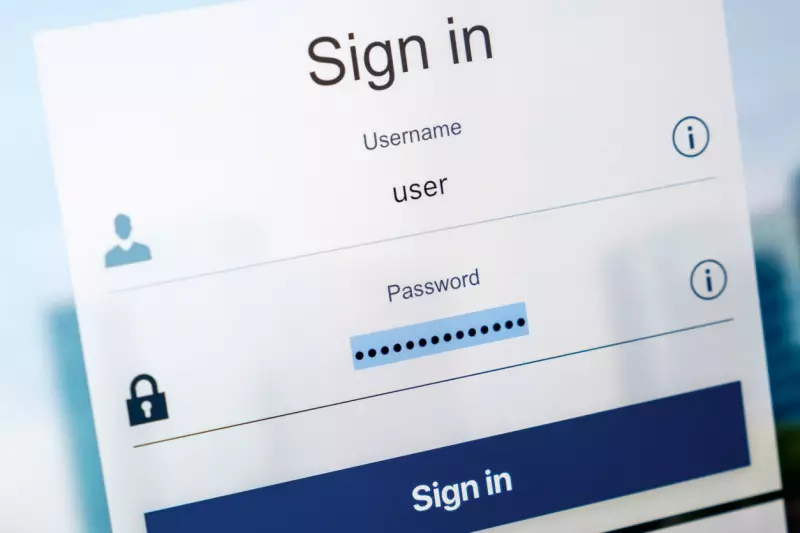Password Spraying: What to Do and Prevention Tips
Table of Contents
- By Greg Brown
- Published: Oct 10, 2022
- Last Updated: Oct 11, 2022

Brute force attacks on computer systems are an effective means of entry for ransomware theft. The brute force uses high amounts of computing cycles to scan through every possible password combination to find the right one. Government and large corporate combinations are enormous and take a lot of time to hack.
Brute Force
A few main brute attack methods, including Password Spraying, are used in modern times, with more constantly on the way.
- A simple attack strategy is a method to use word combinations and try to guess login credentials. Simple brute force is effective because of weak passwords. These account passwords are easy to guess even without software.
- Credential stuffing means trying weak passwords on other websites to gain access. The result is the passwords and login credentials are stolen.
- Dictionary attacks are after a single login or just a few. An attack is a basic form of influencing rather than an all-out assault.
Brute force methods often have strong motives behind each attack. Hackers must have plenty of patience when trying to decode a login credential. The attack may last months and even years to complete as the security level increases when trying to hack a government or large corporate site.
Password spraying is considered many things, a brute force attack or the opposite. Password spraying is a high-volume event; instead of cycling through passwords with the same username, spraying cycles through usernames with the same password.
Password Spraying
Hackers combine attack methods, such as the dictionary force, with a simple brute attack. Attacks begin with word combinations, numbers, years, and random characters to discover login information. Hackers only need to guess one word; most people are leaving user names stored on the computer.
Machine learning and AI have made the job of security and hacking much easier for both sides, especially when combining schemes and layouts. Attackers often seek to steal personal information; from one to thousands of accounts.
Spreading malware is the most likely form of malicious activity hackers want to create. A hacker’s most effective form of activity is emailing the code directly to unsuspecting account holders. Concealing malware in website code is another effective form of spreading for the hacker.
What Exactly is Password Spraying?
Spraying is a vicious variant of a simple brute attack. The code repeatedly sends password combinations to a single account, often disabling the lock-out rule. Hackers send multiple combinations across different accounts in short periods before another combination is used.
Once in the system, virus code moves laterally, attacking network vulnerabilities as it goes and consuming as much sensitive data as possible. After the authentication protocols are disabled, password spray code attacks the single sign-on (SSO) and native cloud applications.
Password Spraying techniques use social engineering to identify targets and user credentials. Easily guessed passwords are always tried and retried with this type of attack. Leveraged accounts are used to find more email accounts to infest. Social engineering attacks are especially effective in password spraying.
- Baiting is a technique to pique a user’s interest by luring in account holders, stealing personal information, and infecting the machine with malware.
- Pretexting is another spraying method used by attackers impersonating a person in authority attempting to gain authority over an account. Attackers craft cleverly worded sentences to garner bits and pieces of information, showing an entire picture of the victim. Each question asks for more authority.
Scareware, phishing, and spear phishing are attacks we have heard of before. Current hackers are bolder in their attack strategies and go after higher-value targets.
February 2022, the Cybersecurity and Infrastructure Security Agency (CISA) issued an alert concerning several simple but effective strategies to gain access to a victim’s computer. The FBI, NSA, and the CISA are seeing regular targeting of US Defense Contractors by Russian cybercriminals. Password Spraying is one of the effective strategies considered in the alert.
Protecting Against Password Spraying
As hackers develop new code or techniques, countermeasures are created and implemented quickly. Most email advice to counteract malicious code are the same strategies developed years ago. The issue with password spraying is in its simplicity. Users trained to detect complex email attack patterns do not see simple spraying symptoms.
Email protection is user awareness of “well-documented procedures” for password security and resets.
- Each account must have strong password creation and management. Everyone seems to struggle with a password; most of us think adding one to the end of our current password will fool an attacker. Tools used by hackers have evolved dramatically in the last few years; they are upgrading their work by using automation and machine learning techniques.
- Multi-factor identification is an added security level that will strengthen overall security combined with other layers. Critical systems require a greater number of security layers. If there is no MFA, begin by resetting all the system passwords.
- Endpoint detection and response is a good overall strategy to stop a virus, not just control it. Endpoint security protects its core by continuously monitoring end-user devices and responding to cyber threats with continuous visibility into endpoints in real-time.
Companies who feel their IT security to be in danger should consider a Pen Test. These tests are self-administered, and run-throughs find vulnerabilities in the network landscape. Pen Tests should be done regularly to establish a baseline.
Penetration testing software lets administrators quickly add password attack simulations to find vulnerabilities. Find out which machines are sharing credentials. Hackers can access login information in many ways, given the time and computing cycles. Key loggers and attacks,
Software becomes more sophisticated with each new release. Rising use of password spraying has been seen, notably, because the software has become more intelligent, says the Microsoft Detection and Response Team (DART). Use a few of the protection schemes recommended by Microsoft.
Always Be Sure to Protect Your Passwords
The names of the attacks may change regularly; however, protection should have a solid foundation of training to get it right. The weakest link in the security chain is always an email account holder. All it takes for a complete computer system and network reset is one user clicking on an ad.
The largest hack in history was carried out by an Iranian group hacking Saudi Aramco. Costs are still being calculated; at the time, most estimates put the loss at 35,000 company computers were destroyed. The resulting damage almost put Saudi Aramco, the largest oil company in the world, back to calculators.
















